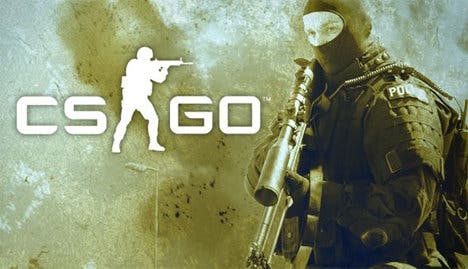Valve's Gabe Newell
CS: GO, Steam, Portal 2 DLC and Half-Life 3.
I don't know about that. Where did Valve get its start? We got our start because the guys at id Software were building stuff that's not only cool for gamers, they're also saying, how can these be tools for other people? If id hadn't done that, then Valve wouldn't exist.
We just think we're following in that same tradition that goes back to the earliest days of the PC gaming environment. You're not just building a game, you're also building tools for other game developers. We look at Steam the same way. We're building value for our customers, but we're also building, hopefully, useful tools for other developers. We think like a developer, so when we think about building a service or a feature, we think it is often times going to be really useful to other people.
If you look at the tournament software here, it involves a bunch of code that runs inside of the game. It involves a bunch of back end services. It involves a bunch of web development. We think it's really useful in Dota 2. We're going to try putting it in some of our other games to make sure we can generalise it. And then we put it into Steamworks and all of our Steamworks partners can look at that and say, that's super useful to us, or it's completely irrelevant to us.
One of the characteristics we've always loved about the PC gaming environment is how much collaboration there is and how much everybody is thinking about how they can build tools and technologies. We're really following in those footsteps. Tim Sweeney [founder of Epic Games] embraces that. John Carmack [co-founder of id Software] has embraced that. It's always been there and it's part of why the PC gaming industry has been as vibrant for as long as it's been.
Valve is a company that tries to build value for customers and its partners. We're trying to do the same thing today we did when we were working on Half-Life 1. We try to bring together the best, smartest people in the world and build an environment in which they can get more done and deliver more stuff to customers than they could some place else. I think we do a pretty good job of bringing those people together and helping them get more work done rather than dealing with a bunch of bullshit or worrying about quarterly reports or what some banker or producer is telling them ought to be in the game, rather than what they know should be in the game.

I don't think grand ambitions really help us make our decisions. Everything just has to be grounded in whether it's going to make a gamer's life better or not. Is it going to be making other game developers' life better or not? Once you start having grand ambitions you start to lose sight of the basic usefulness you can do.
As a blue collar worker, you pick up your lunch bucket and your hammer and you go into the mine and you get to work - but that sort of attitude helps a game company make better decisions as to be not thinking in terms of grand ambitions, but what have we done today to make gamers happier? What have we done today to make something easier or better for one of the partners who want to work with us? It's hard to go very wrong if that's your attitude. It doesn't make a great headline.
When we try to think about how do we evaluate that, we look at a couple of metrics. One of the most important things at the end of the day that determines peoples' experiences is just the size of the active audience that's playing. Almost everything for a multiplayer game is going to get better the more people who are playing it. You get more servers. You get better matchmaking because there are more people to matchmake with and so on. Team Fortress 2, the community has got much larger than we expected when we went to free-to-play. So using that as probably our most important metric, we're really happy with how things have gone, because that means all the Team Fortress 2 players are going to benefit from this influx of new players.








